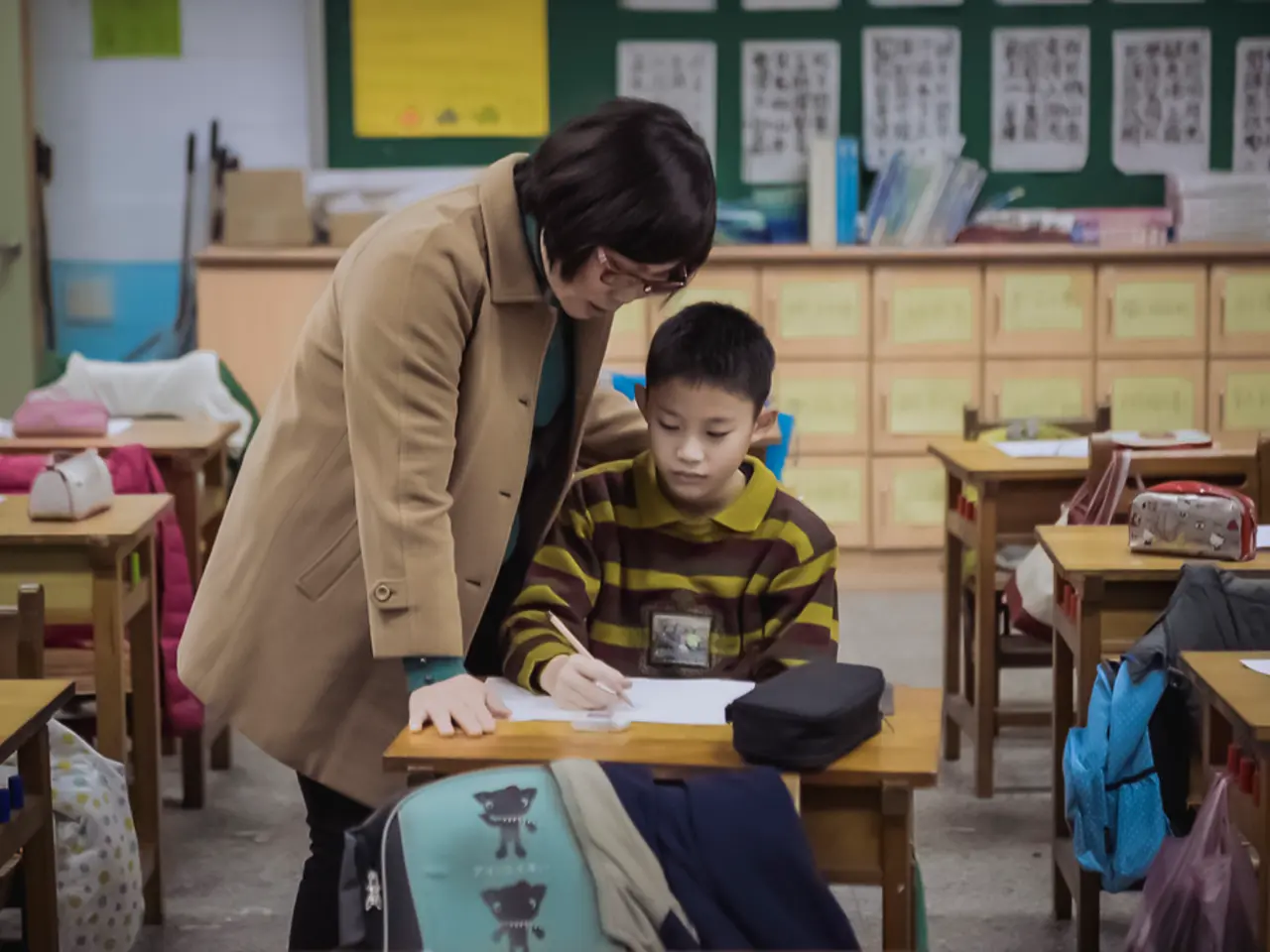Teacher's Voice: Family Involvement in Classrooms Led to a Drop in Absenteeism and Improvement in Reading Skills
Transforming a School Community: The Story of Hamilton Elementary
In the heart of San Diego's City Heights neighborhood, Principal Dr. Brittany Daley of Hamilton Elementary School embarked on a mission to revitalize the school environment and foster a stronger connection between home and school. Two years ago, she bought blue chairs for teachers, symbolizing the change that was about to unfold.
Following the Covid-19 pandemic, the school faced challenges. Only 13% of students were reading on grade level, and 37% were chronically absent. Recognizing the need for action, Dr. Daley set out to create a more inclusive and engaging atmosphere.
A Halloween costume drive and Read Across America event were organized, providing fun activities for the school community. Activities tied to phonics concepts were sent home for families to complete with their children, based on individual assessments. The author's intention was to challenge the false narrative that families didn't know enough, weren't confident, or didn't have time to help with their children's education.
The author focused on building trust and collaboration between families and staff using ClassDojo, a mobile app that automatically translates messages into parents' native languages. This open communication tool helped reduce chronic absenteeism to 10%, and today, 45% of students at the school are reading at grade level.
To further engage families, low-stakes events were organized at school to build a partnership between home and school. The school hosted after-school art classes and monthly family Fridays for family engagement. Roughly half of the students at the school are English learners, with many families speaking languages other than English, such as Spanish, Haitian-Creole, Pashto, and Vietnamese.
The number of caregivers at meet-ups has increased from 10 to roughly 200. Families now run most community-based initiatives at the school, including a food distribution center, book club, English classes, and a monthly meet-up for socializing.
Research shows that parent and caregiver involvement in a child's education can increase student achievement, motivation, and social-emotional well-being. Parent involvement in reading activities has a positive impact on reading achievement, language comprehension, expressive language skills, and level of attention in the classroom.
Effectively combining these approaches can substantially increase parental engagement in diverse communities, leading to better student outcomes, attendance, and social-emotional development. Tailoring communication and engagement efforts to respect cultural and linguistic diversity is crucial for building trust and enabling meaningful participation from all families.
The school's success story is a testament to the power of clear, accessible communication, welcoming informal opportunities, community building, technology leveraging, culturally sensitive communication training, and consistent, two-way communication. By focusing on practical support that enables parents to help at home, Dr. Daley and the Hamilton Elementary team have transformed the school into a vibrant, inclusive community where every family feels valued and involved.
References:
[1] National Centre for Family Learning (2020). Engaging Parents in Education: Strategies for Success
[2] National PTA (2019). Family Engagement: The Key to Student Success
[3] The Education Trust (2018). Communicating with Families: A Key to Improving Student Success
[4] National Association of Elementary School Principals (2018). Family Engagement: A Shared Responsibility
- Dr. Brittany Daley's innovative approach at Hamilton Elementary School aimed to address educational inequality by engaging families, fostering personal growth, and promoting learning through the use of technology, community building, and culturally sensitive communication.
- The school's focus on education-and-self-development has led to a significant reduction in chronic absenteeism and an increase in students reading at grade level, demonstrating that active parental involvement can contribute to personal growth and academic success.
- As a result of the school's efforts, families have become active participants in their children's education, leading to improved student outcomes and social-emotional development, thereby challenging the conventional narrative that inequality in education is insurmountable.




